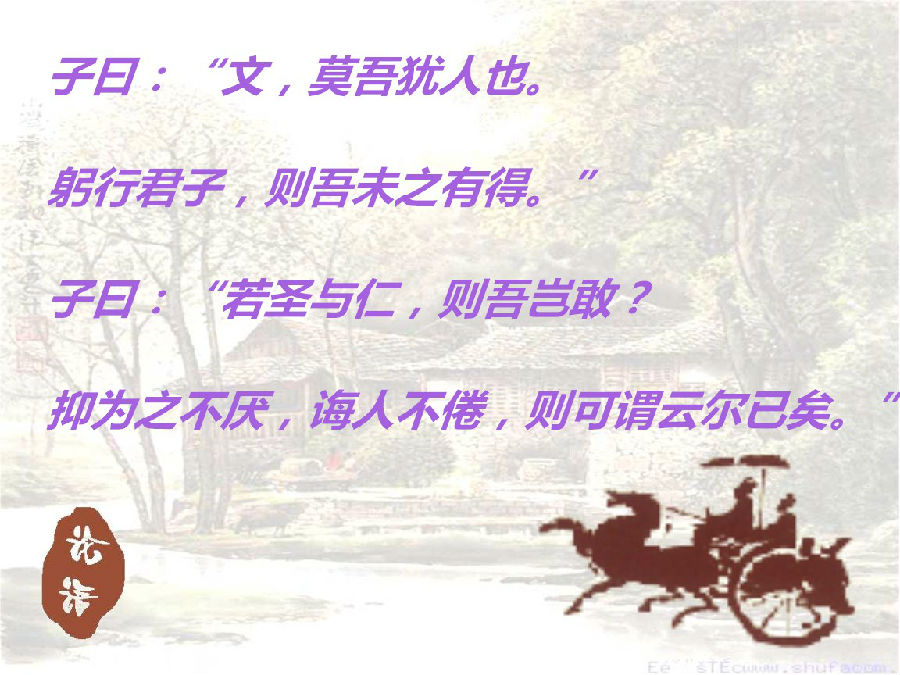The Master said, "In letters I am perhaps equal to other men,
子曰:“文,莫吾犹人也。
but the character of the superior man, carrying out in his conduct what he professes, is what I have not yet attained to."
躬行君子,则吾未之有得。”
The Master said, "The sage and the man of perfect virtue; how dare I rank myself with them?
子曰:“若圣与仁,则吾岂敢?
It may simply be said of me, that I strive to become such without satiety, and teach others without weariness."
抑为之不厌,诲人不倦,则可谓云尔已矣。”
Kung-hsi Hwa said, "This is just what we, the disciples, cannot imitate you in."
公西华曰:“正唯弟子不能学也。”
The Master being very sick, Tsze-lu asked leave to pray for him.
子疾病,子路请祷。

He said, "May such a thing be done?"
子曰:“有诸?”
Tsze-lu replied, "It may. In the Eulogies it is said, 'Prayer has been made for thee to the spirits of the upper and lower worlds.'"
子路对曰:“有之。《诔》曰:‘祷尔于上下神祇。’”
The Master said, "My praying has been for a long time."
子曰:“丘之祷久矣。”
The Master said, "Extravagance leads to insubordination, and parsimony to meanness. It is better to be mean than to be insubordinate."
子曰:“奢则不孙,俭则固。与其不孙也,宁固。”
The Master said, "The superior man is satisfied and composed; the mean man is always full of distress."
子曰:“君子坦荡荡,小人长戚戚。”
The Master was mild, and yet dignified; majestic, and yet not fierce; respectful, and yet easy.
子温而厉,威而不猛,恭而安。












